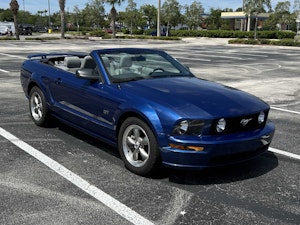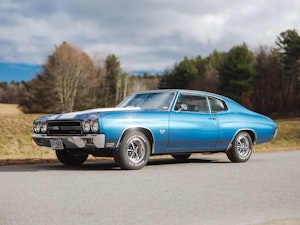Media | Articles
Framing John DeLorean goes deep, doesn’t pull punches
Tamir Ardon is a DeLorean car enthusiast and historian, as well as a bit of a fanboy of the late John DeLorean. That didn’t stop him from taking an unsparing look at the automotive entrepreneur in the newly released Framing John DeLorean, starring Alec Baldwin as DeLorean. Ardon is the film’s producer, and Hagerty contributor Don Sherman (who was on the original DMC-12 press launch) is also featured in the film, providing background snippets to help frame the context of the DeLorean story.
Reenacted scenes with Baldwin and fellow actors playing his associates and family members are interspersed with archival footage and modern-day interviews to tell the history of DeLorean’s rise through General Motors as a gifted engineer and capable business manager, his decision to leave GM to start his own car company, that firm’s subsequent bankruptcy, and DeLorean’s legal difficulties and court trials for cocaine trafficking and embezzlement.
While DeLorean’s descent from grace and denouement ends with him as a lonely old man in a single-room apartment in New Jersey, providing the dramatic arc of the film, the most emotional scenes are interviews with DeLorean’s son Zachary and daughter Kathryn with their recollections and feelings about their father. Zachary expresses ambivalence about how his father’s risky behavior broke up their family and radically changed his lifestyle. Kathryn found comfort in the community of DeLorean DMC-12 buffs and convinced her father to do the same.
Though the movie doesn’t give DeLorean the kid-glove treatment, he’s not portrayed as a villain; rather, he is someone who was ethically compromised and singularly focused on a life’s dream, and thus willing to do whatever needed to be done to keep that dream alive. If there is a bad guy in the film, it’s the late Colin Chapman, founder of Lotus.
Marketplace
Buy and sell classics with confidence
With pressure on to get the DMC-12 ready for production, DeLorean turned to Chapman to have Lotus engineer the car, pushing aside Bill Collins and some of DeLorean’s other associates. DeLorean and Chapman also set up a shell company in Switzerland to apparently embezzle about $18 million that DeLorean had earlier raised selling stock. Chapman died of a heart attack before he could be prosecuted, but his associate Fred Bushell served time in prison for his part in the scheme.
An alliance between two people with strong indications of psychopathology and narcissism, as John DeLorean and Colin Chapman undoubtedly were, two men known to play angles and cut corners, was not likely to end well. They may have been talented engineers and managers, but they were far from saints.

A jury acquitted John DeLorean of the embezzlement charges, but the film implies that his hands were not clean in either case.
The title of the film, Framing John DeLorean, references the drug charges but also has a double meaning. The jury acquitted John because it felt that the U.S. government had essentially manufactured the case, setting up a desperate man to get headlines in the war on drugs, but it’s also a real attempt to frame a picture of this man with all his strengths, weaknesses, and idiosyncrasies. Framing John DeLorean gives us a lot of behind-the-scenes views on the making of the film, and a recurring theme in the movie is puzzlement that nobody has produced a feature biopic on DeLorean. It’s genuinely a great story, though there are quibbles with the film itself.
Baldwin is the only actor in the film who wears prosthetic makeup to look like his character and it becomes distracting. Baldwin does a good job reproducing DeLorean’s speech and mannerisms, though.
More time could have been spent on the car itself and the major differences between the original composite monocoque DeLorean concept, and the rear-engined variant of the Lotus Esprit that was the production car.
The film doesn’t seem to address that DeLorean was acquitted on the financial charges.
Cristina Ferrare, DeLorean’s ex-wife, is prominent by her absence, the only major protagonist of the story who is not interviewed, but if she did not want to participate, it’s understandable. She divorced John, remarried within a year, and made a new career as a host on local Los Angeles television.
Complaints aside, the film is very well done. Framing John DeLorean does an outstanding job telling that story and getting the history correct, while at the same time it works as an entertaining and engaging movie about a talented, but flawed human being.










